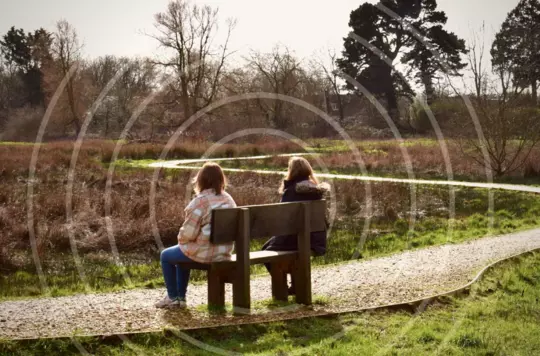27 March 2023
How can we fan the flame of the Holy Spirit?
Major Susan Woodgate
Major Susan Woodgate reminds us that the Holy Spirit fuels our vision and mission.
Key text
In three months, I will be celebrating 23 years of marriage. In those 23 years, we have lived in 8 houses, had 3 children, 7 rabbits, 6 guinea pigs and 1 dog. We have had good days and bad days, times of celebration and times of grief.
In the months leading up to us getting married, many of our friends wanted to give us advice. They wanted to help us. I must admit that some of the advice was helpful and some not.
The most memorable piece of advice came from my mother-in-law and has helped me every day since. She told me that many people say that marriage is all about give and take but, for her, that was not true. She encouraged and advised me to remember that marriage is all about giving – and nothing more. How wise she was – and still is! That piece of advice has shaped and guided me throughout my marriage.
Pause and reflect
- What’s the best piece of advice someone has ever given you?
- Why?
The study passage we are considering is found towards the end of Paul’s first letter to the church in Thessalonica. In so many ways, the body of believers there was a model church. They cherished God’s word. They were people of faith and hope. They exhibited missionary zeal. However, just like us, they were human and, at times, vulnerable in their personal relationships.
Paul seems to have noticed that these followers of Jesus needed a little bit of help in this regard, so he writes to them with words of advice to guide them as they seek to serve God together. This advice is still helpful for us today.
Reading verses 12 to 14, we might assume that, at times, these Christians were tempted to be somewhat critical or, perhaps, occasionally unsupportive of their leaders. This is no way to repay those who ‘work hard among you’ and ‘care for you in the Lord’ (v12). Paul tells them that they should respect, value and live at peace with each other – including the leaders with whom they disagree.
To be honest, I am somewhat comforted that Paul needed to write these words to the Thessalonians. If you are anything like me, it’s not always easy to respect and value our spiritual leaders. Sometimes they make decisions I do not agree with, or simply do not see things as I do.
This is where my wise mother-in-law and Paul agree – relationship is all about giving. If our leaders are people who seek God, and in love give to us, then we must give back to them the qualities that Paul outlines.
Pause and reflect
- Do your leaders know that you respect, value and love them?
- How might you show them this in the next week?
Paul’s advice continues in verses 16 to 18: ‘Rejoice always, pray continually, give thanks in all circumstances.’ Does rejoicing mean that we always go around with a smile on our face and an upbeat Tigger-style bounce in our step? Does Paul really mean pray every hour God sends? Does he really mean that we need to be grateful for absolutely everything, including those things that hurt, defeat or frustrate us?
As I look at these verses, I must look back to chapter 4 in this letter to better understand what he means. In verses 13 to 18, we find him encouraging the believers to live in hope of the Resurrection. Because Christ was raised to life, those who believe in him do not have to ‘grieve like the rest of mankind, who have no hope’ (v13). Paul outlines a yet-to-be-fulfilled divine timetable, that shows that God has everything in hand. Culminating in being ‘with the Lord for ever’ (v17), a believer’s future is not bleak: it is hope-filled.
Paul knows that life is not always easy, but he is a great example of how to live in hope (see Acts 16:16–40).
Pause and reflect
- How might we find ways to rejoice always, pray continually and give thanks in all circumstances?
- In your fellowship with other Christians, how do you remember God’s goodness and celebrate this together?
Finally, we turn to verses 19 to 24 of our study passage. Here, Paul calls us to love each other, to live at peace and to show this world how to live this way. We do this not in our own power, but we live in the presence and by the power of God’s Holy Spirit. We are blood and fire people.
As God’s fire burns, it brings energy and light. It transforms and fuels our vision and mission. Paul warns the Thessalonians – and each of us – not to be people who put out such fire.
Imagine a camping trip. The crackling wood fire is burning, giving the much-needed warmth, and is ready for cooking a nourishing meal. Then someone throws a bucket of water over it and puts the fire out. Or, less dramatically, someone sits close to the fire and, slowly but continually, splashes the fire with small amounts of water. In time, the wood gets wet, the flames dwindle and the fire goes out.
Pause and reflect
- Are we holding on to what is good?
- How can we enable God’s fire to keep burning?
Through our indifference and coldness, can we be guilty of quenching the fiery Spirit? In our fellowships, how might we repent of this and change so that we fan the flame (see 2 Timothy 1:6) rather than extinguish it?
Bible study by

Major Susan Woodgate
Divisional Mission Enabler, South London
Discover more

Grace Ball asks what we are doing to support young people.

Hannah Carr (Norwich Citadel) shares her playlist with Divisional Youth Specialist Ruth Beattie (East of England).

Resources to help transform our hearts this Lent, including material for Palm Sunday.

